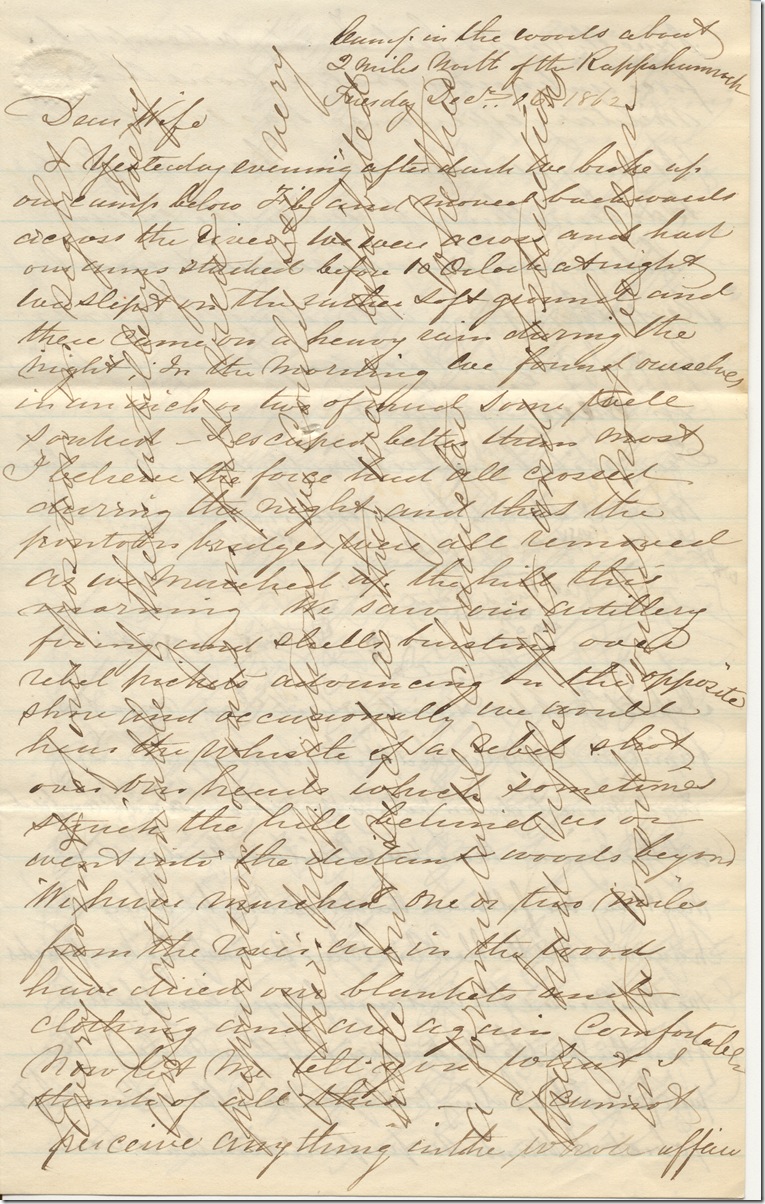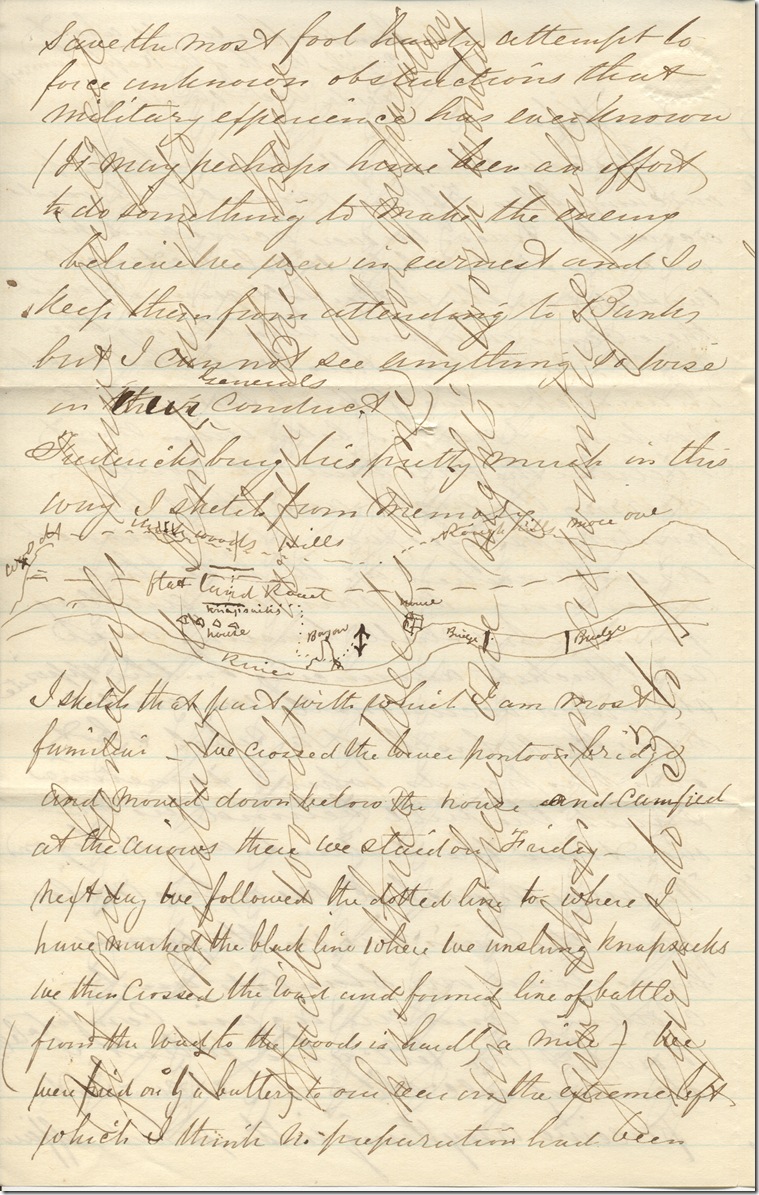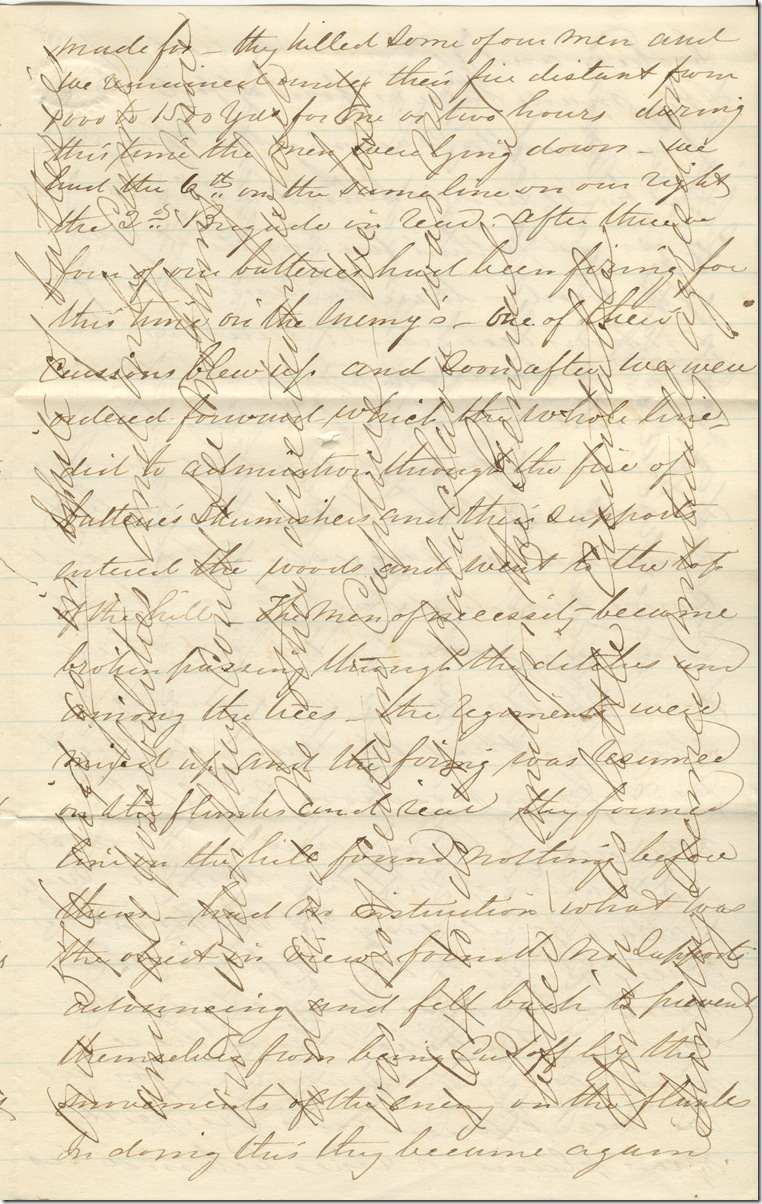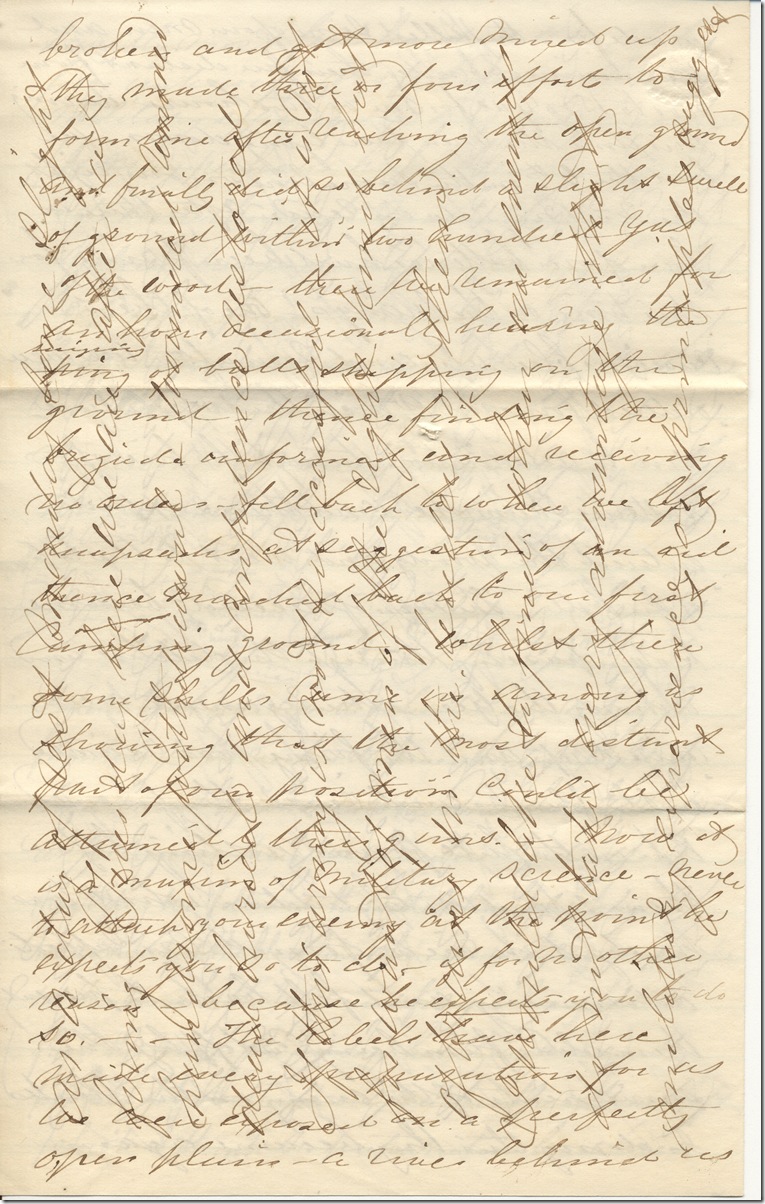Alexander Biddle was a member of the prominent Philadelphia Biddle family and was married to Julia Williams Rush, the granddaughter of Dr. Benjamin Rush. Biddle served with the 121st Pennsylvania Volunteer Infantry, beginning in September 1862. Starting out as a major, he would participate at Fredericksburg and Gettysburg, among other engagements, and would leave the service as a lieutenant colonel. (He was commissioned, but never mustered, as colonel) 



Transcript:
Camp in the woods about
2 miles North of the Rappahannock
Friday Dec. 16th 1862
Dear Wife
Yesterday evening after dark we broke up our camp below F’bg and moved backwards across the river. We were across and had our arms stacked before 10 Oclock at night We slept on the rather soft ground and there came on a heavy rain during the night. In the morning we found ourselves in an inch or two of mud some were soaked – I escaped better than most I believe the force had all crossed during the night and thus the pontoon bridge was all removed as we marched up the hill this morning We saw our artillery firing and shells bursting over rebel pickets advancing in the opposite shore and occasionally we would hear the whistle of a rebel shot over our heads which sometimes stuck the hill behind us or went into the distant woods beyond. We have marched one or two miles from the river, are in the wood have dried our blankets and clothing and are again comfortable. Now let me tell you what I think of all this. I cannot perceive anything in the whole affair save the most fool hardy attempt to force unknown obstructions that military experience has ever known / It may perhaps have been an effort to do something to make the enemy believe we were in earnest and so keep their forces attending to Banks but I cannot see anything so wise in their conduct
Fredericksburg lies pretty much in the way I sketch from memory
[sketch]
I sketch that part with which I am most familiar. We crossed the lower pontoon bridge and moved down below the house and camped at the arrows there we staid on Friday.
Next day we followed the dotted line to where I have marked the black line where we unslung knapsacks we then crossed the road and formed line of battle (from the road to the woods is hardly a mile) we were fired on by a battery to our rear on the extreme left which I think no preparation had been made for. They killed some of our men and we remained under their fire distant from 1000 to 1500 yds for one or two hours during this time the men were lying down. We had the 6th on the same line on our right the 2nd Brigade in rear after three or four of our batteries had been firing for this time on the enemy’s. One of their caissons blew up and soon after we were ordered forward which the whole line did to admiration through the fire of batteries skirmishers and their supports entered the woods and went to the left of the hill. The men of necessity became broken passing through the ditches and among the trees the regiments were mixed up and the firing was resumed on the flanks and rear they formed line in the hill formed nothing below them had no instruction what was the object in view formed no supports advancing and fell back to prevent themselves from being cut off by the movements of the enemy on the flanks In doing so they became again broken and got more mixed up They made three or four efforts to form line after reaching the open ground and finally did so behind a slight swell of ground within two hundred yds of the wood. There we remained for an hour occasionally hearing the ping of balls skipping on the ground – thence finding the brigade uninformed and receiving no orders fell back to where we left knapsacks at suggestion of an aid thence marched back to out first Camping ground whilst there some shells came in among us showing that the most distant part of out position could be attained by their guns. Now it is a maxim of military science – never to attack your enemy at the point he expects you so to do – if for no other reason – because he expects you to do so. The Rebels have here made every preparation for us we were exposed on a perfectly open plain – a river behind us Every point of our position in sight and attainable by their artillery – Every preparation of ours in full view
Of their preparations we could see very little but such as they were exhibited a formidable character. Whether they had rifle pits and obstructions in the woods could not be seen Yet our Generals have judged it military to send us into thick woods where they have had three weeks time for preparation and were one night’s work would give them an advantage fully equal to 3 to 1
Our 576 did go in spite of batteries and all possibilities and only came out when they could see nothing more to do and no other direction what was not certain capture. We lost 164 to do it. Balaclava was no better – and for the General I think as little creditable
Sunday seemed mutually agreed on as a day of rest Monday some slight firing – Tuesday here we are after a handsome withdrawal, wounded removed dead buried and confidence restored
If this army is not successful it is not for want of men of the right kind but of brains in the leaders of them
I would like to find when one enemies do not take every advantage that military experience or principle suggested
Citation: Alexander Biddle (1819-1899), autograph letter signed to Julia Williams Rush Biddle. 16 December 1862. Rush:IV:30:26
.…
thanks for information!!…
.…
ñïñ çà èíôó!!…
.…
thanks….